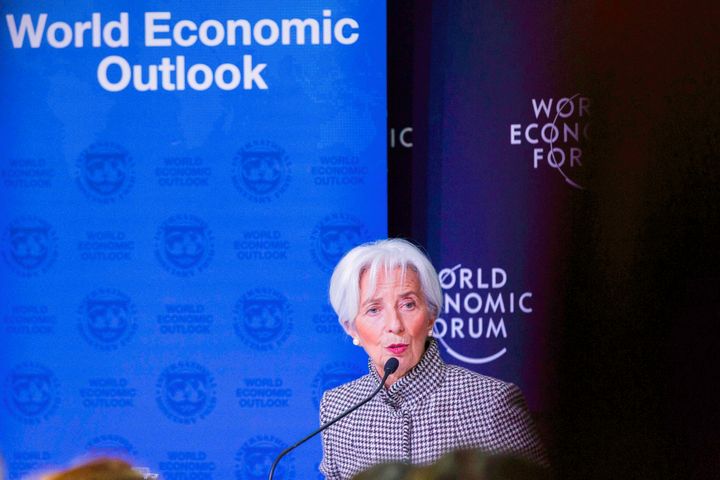 IMF Leaves China Growth Forecast as Is, Again Downgrades World
IMF Leaves China Growth Forecast as Is, Again Downgrades World(Yicai Global) Jan. 22 -- The International Monetary Fund has revised its forecast for global economic growth downward for this year and next but is sticking to its projection for China.
The Washington, DC-based international organization released its update World Economic Outlook yesterday. Titled A Weakening Global Expansion, it whittled down its forecasts for global economic growth this and next year by 0.2 and 0.1 percentage points, respectively, to 3.5 and 3.6 percent.
This was its second such backpedaling since October when the organization lowered its projection for global growth for the first time in two years. The tightening financing environment, uncertainty about trade and the risks of the UK staging a hard pullout from the EU have are all deemed factors that may catalyze an economic downturn.
The Chinese economy is still under pressure from a downward economy, the IMF believes, but the government has also adopted various policies to cope with this eventuality, and the IMF has accordingly held its prediction for China's economic growth for this year and next unchanged at 6.2 percent.
The main cause of China's economic slowdown last year was "financial regulatory tightening to rein in shadow banking activity and off-budget local government investment," the IMF said, but also cited external uncertainty, which further slowed economic growth.
China will still come under the threat of economic downdrafts this year, and regulators should deal with any blowdown by easing financial regulation, releasing liquidity, cutting the required reserve ratio and promoting policies to spur finance, the outlook advised.
World economic growth is exposed to risks of downturn since its momentum has peaked, and therefore "domestic policies urgently need to focus on preventing additional deceleration and strengthening resilience," the forecast recommended.
China's economy will eventually stabilize after bottoming out, but it may be more sluggish than before, Lu Ting, chief economist at Tokyo-headquartered Nomura Securities' Chinese unit Nomura China told Yicai Global, commenting on the outlook. The government will not loosen its grip on the housing market, which means almost all tasks of stimulation will rely on infrastructure, he added.
Cold weather prevails before and after China's Spring Festival in early February, and the large-scale start of construction for new projects or the accelerated start of existing projects is thus unlikely in the first quarter, Lu believes.
The IMF also referenced China's further expansion of financial deficits, he noted. The Chinese government still suffers from a quite large financing gap, from which falling land sales and the braking growth of the country's financial revenues mainly result, and this shortfall needs extra funding to supply, such as special local government bonds and financing tools from both policy banks and regional authorities, Lu added.
Policy makers will mainly focus on spurring finance this year. Tax and debt cuts will hopefully come into further play to expand deficit rates and issues of local governments' special bonds at the same time, which may rise to CNY2 trillion next year from CNY1.35 trillion (USD199 billion) this year, Xing Ziqiang, chief economist with Morgan Stanley China, predicts, adding that the contribution rate of infrastructure to actual economic growth this year will climb to 7.5 percent next year from 1.5 percent this year.
US economic growth will decline to 2.5 percent in 2019, and weaken to 1.8 percent next year, the IMF predicts, and this also reflects the economic slowdown "with the unwinding of fiscal stimulus."
US economic growth in this and next year will still stay higher than the potential growth rate. The strong increase in domestic demand will support the growth in amount of imports, and it will also swell the US trade deficit, the IMF noted, however.
Compared with October last year, the IMF also amped down its projection of economic growth in the eurozone this year by 0.3 percentage points to 1.8 percent.
Editor: Ben Armour